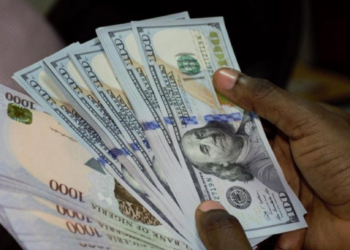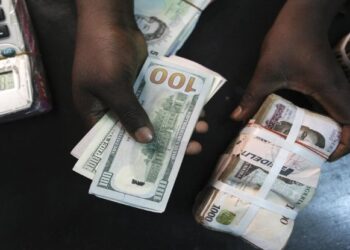The digital lending space in Nigeria is attracting more players by the day, leading to a steady increase in the number of loan app companies approved by the Federal Competition and Consumer Protection Commission (FCCPC) and the Central Bank of Nigeria (CBN).
From 211 at the end of 2023, the number of companies approved to operate loan apps in the country has risen to 263, according to the FCCPC’s database. This total includes those given full approval, conditional approval, and those licensed by the CBN.
According to the list published by the FCCPC, 215 companies have been granted full approval to operate as digital lenders in the country, while 38 companies have received conditional approval.
In addition to these, the FCCPC listed 10 other companies licensed by the CBN to operate loan apps, bringing the total to 263.
It is important to note that each of these companies operates through multiple apps, providing different types of loans.
This expansion comes amid the issue of rising non-performing loans in the digital lending space and a growing list of illegal apps leveraging technology to lure people into taking collateral-free loans with exorbitant interest rates.
Why more companies are moving into digital lending
According to some industry stakeholders, the allure of high interest rates charged by the loan apps is encouraging more companies to see business opportunities in digital lending.
However, the President of the Money Lenders Association, the umbrella body of registered digital money lenders in Nigeria, Mr. Gbemi Adelekan, said high-interest rates are only peculiar to lenders offering small and short-term loans, known as Nano loans.
For him, the main reason more players are coming into the digital lending space is because fintech is one of the major booming sectors in the economy and there is ease of entry.
- “I think more people are also coming into digital lending without proper risk assessment due to the minimal entry requirements and regulations,” he said in a telephone interview with Nairametrics.
Bandwagon effect
While noting that commercial banks are now also getting digital banking licenses separately from the CBN to be able to go into digital lending, Adelekan said:
- “You know how Nigerians are, once they see that one business is booming, they all move into it. If it’s stock, they move into it; if it’s hairdressing that is doing well today, everybody will rush it.
- “Meanwhile, as some people are rushing in, a lot of people are rushing out because of the risks involved and the rising non-performing loans. Recovering debt from the people is now becoming more difficult.”
Nairametrics recently reported that more Nigerians are now resorting to credit from loan apps to survive as the harsh economic conditions bite harder.
In some cases, there are no plans to repay the loans by the borrowers, while those willing to repay find themselves borrowing from one app to pay another. The lenders had also complained that this has also led to a dramatic jump in their non-performing loans (NPLs) as most borrowers are not paying back.
Recommended reading: FCCPC raises alarm as loan apps continue to violate its regulation
Loan apps’ interest rates
Meanwhile, amid complaints by borrowers that digital lenders in Nigeria are charging very high interest rates, the lenders said only the loans with high risks come with high rates. According to the President of the lenders, loan apps have not been able to increase their rates over the last two years.
- “We are not able to increase our interest rates because the customers will complain. The rate for our installment loan has been less than 5% per month over the last two years. But for those who do Nano loans, they are charging up to 15% because of the risks involved.
- These are small loans that are short-tenured for like 30 days. The risk is very high because you don’t do all the necessary checks that you are supposed to do, like checking bank statements, location verification, and all that, unlike installment loans where you do all that including confirming their salary.
- “That is where the new players are playing but the old players are running away from it because of the rising NPLs. The new players are coming in because they think everything is rosy,” he said.
Menace of unregistered loan apps continue
Despite the rise in the number of digital leaders that have registered with the FCCPC and secured approval to operate, hundreds of other unregistered lenders are still playing in the market and getting patronage from desperate borrowers.
As a result of their continuous atrocities which include defaming and harassing their customers through their contacts, the FCCPC said it has now placed 88 loan apps under its watchlist as it continues to work out modalities to sanitize the digital lending space.
According to the Acting Executive Vice Chairman/CEO of the FCCPC, Dr Adamu Abdullahi, the Commission is coming up with a new regulation that would address the challenges around debt recovery by the loan apps.
- “Yes, they give loans here and there and they must collect their loans back, but they do not have to go ahead and destroy families and lives in the process of collecting back their loans. So that is what this regulation that we’re coming up with will address. We are trying to balance everything,” he said.
























